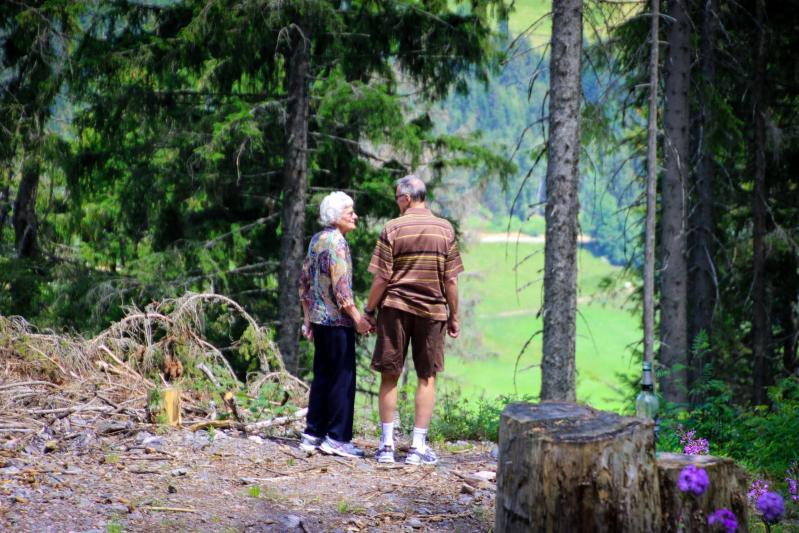How can I help my elderly relative be more independent?
Currently, one in six Australians is aged 65 or over. So the chances are that you have at least one elderly relative and know how important it is for them to maintain their independence. Being self-sufficient boosts their confidence and helps them to stay youthful for longer.

But what happens when your loved one shows signs of becoming more dependent on others?
In this post, we describe ways in which you can help elderly relatives maintain their independence and live a fuller life. They’re all simple tips that are easy for anyone to put in place. Read on to learn more!
Don’t take over
When you see your loved one slowing down, it’s tempting to start taking over and making decisions for them. But this can be the worst thing you can do as it takes away their voice and independence.
You can help an elderly person live a fulfilled life by encouraging them to express their opinions and make their own decisions about big and little things. This could be anything from what to wear to decisions about how they do their banking.
When tempted to say, “I think you should…”, instead try, “What would you like to do?”. Your relative will appreciate the opportunity to continue making decisions about the things that are important to them.
Encourage their social life
Encourage your elderly relative to lead an active social life by helping them to continue existing activities and suggesting new hobbies.
You could offer to accompany them to church, visit friends or relatives, or merely provide the transport there and back.
You can also suggest new activities that get them out of the house enjoying the company of others. These could be activities that provide mental stimulation like joining a book club or playing chess or creative hobbies like art classes and photography courses.
Be their “exercise buddy”
Keeping physically active is an important lifelong priority. Not only will it keep your loved one fitter for longer, but it will also give them a sense of emotional wellbeing.
Encourage them to keep up an exercise regime by offering to be their “exercise buddy”. This means that you commit to exercising together for a certain amount of time every week.
Choose activities that you think will appeal to your elderly relative. For example, gentle exercises like yoga and tai chi are popular with seniors, or they may prefer activities that offer more social interaction, such as golf or tennis.
Purchase a medical wristband
If your elderly loved one lives with poor health, wearing a medical condition wristband can offer them a new lease on life.
Medical wristbands are printed with information about the wearer’s condition and sometimes contact details. This means that if they cannot communicate in an emergency, they will still receive the correct treatment, and someone can contact the family.

For comfort and durability, take a look at our range of silicone medical wristbands. You can choose one pre-printed with medical conditions like diabetes, asthma or epilepsy or have one customised with the wording of your choice.
Or your loved one may prefer a more traditional stainless steel bracelet that looks stylish and is hardwearing.
Whatever their style, wearing a medical ID bracelet will give your relative the confidence to live their life to the fullest again, knowing that they will be looked after in a medical emergency.
Ensure their home is safe
Being able to live safely in their own home is a priority for many elderly people. And there are lots of “quick win” ways you can help them achieve this.
Here are some examples of what you can do:
- Clear away any clutter that could be a trip hazard
- Rearrange the furniture to maximise space
- Tidy loose cables and secure them with cable clips where possible
- To make the bathroom safer, install grab rails, a raised toilet seat and a shower chair if needed
- You can add extra grab rails around the home, for example, near doors, to make entering and exiting the house easier
- Replace outside steps with a ramp
- Install a stairlift if your loved one has difficulty getting upstairs
- Make the kitchen safer by keeping utensils within easy reach and using non-slip mats under chopping boards and cups with a wide base to prevent spills
- Make sure smoke and carbon monoxide alarms are fitted and in good working order
Shop medical wristbands Australia
Getting older doesn’t mean your loved one has to limit their lifestyle. On the contrary, by following our simple tips, you can help them live as full a life as possible.
Start with something easy by purchasing a medical wristband for your loved one. Browse our collection to find one that matches their condition or have one customised with the wording of your choice.
Dispatched quickly throughout Australia, our medical wristbands are one small step towards a safer and more independent life for your elderly relative!

